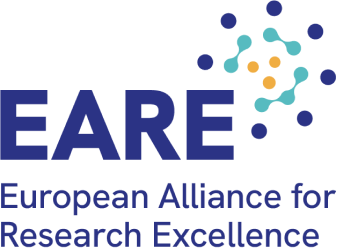EARE position on the future European Strategy for AI in Science
EARE position on the future European Strategy for AI in Science
The European Alliance for Research Excellence (EARE) welcomes the opportunity to contribute to the development of the European Strategy for AI in Science. We commend the European Commission’s recognition of AI’s strategic role in advancing science and research. The proposed strategy rightly aims to accelerate responsible AI adoption and facilitate its use by researchers across the EU. However, several persistent challenges must be addressed to realize this vision:
1) Limited access to data
Mechanisms used by content aggregators and rightsholders such as restrictive terms of use, robots.txt, paywalls, and technological protection measures (TPMs) hinder access to data, even for paid or legally accessible materials, jeopardizing modern research and AI training. This scarcity increases the risk of bias in research outcomes and AI systems, ultimately undermining the quality, reliability, and inclusiveness of European innovation.
2)Inconsistent implementation of text and data mining (TDM) exceptions and legal fragmentation
The inconsistent implementation of the TDM exceptions across the EU and increasing court decisions interpreting the scope of aspects of TDM, is leading to divisions across the Union on how TDM applies and causes confusion and deters researchers from using data which is key for research development and AI innovation.
3) Ambiguity regarding commercial and non-commercial research
The artificial divide in the EU Copyright Directive (Articles 3 and 4) between commercial and non-commercial research does not reflect today’s research reality, where commercial involvement is common. The legal divide creates uncertainty, especially when researchers are involved in public-private partnerships or when a research project intends to develop commercial products. This ambiguity disproportionately affects startups and SMEs, which often rely on such collaborations to bring innovation to the market. In today’s research ecosystem, where collaboration across sectors is common, this distinction is increasingly unjustified and limits the ability to turn research into real-world solutions and market-ready innovations.
EARE Recommendations for the future AI in science strategy
1) Ensure open access to data
To avoid limited access to data and biases in research and AI, the future strategy should focus on granting and ensuring access to large and diverse datasets, creating an environment where researchers, startups, and innovators can have access to high quality datasets.
2) Strengthen and harmonize TDM exceptions
To ensure that researchers can access high quality datasets, the future strategy should emphasize the importance of TDM exceptions within the EU Copyright Directive (Article 3 and 4), prioritizing the implementation of these exceptions in the Single Market to foster the use of AI in science. The uniform implementation of these exceptions across Europe is key for researchers developing AI models where collaboration on scientific projects can often span multiple jurisdictions.
3) Align legal frameworks with the realities of research today
The strategy should reflect that modern research is collaborative and cross-sectorial, often involving public-private partnerships between researchers and AI providers. To maximize the impact of European research, the strategy should facilitate the translation of research into real-time solutions and support the use of scientific outcomes in startups and innovation ecosystems. Aligning regulation with research practice will ensure a stronger return on Europe’s scientific investments.
Conclusion
To succeed with AI in science, Europe must empower researchers, drive innovation, and reduce legal uncertainty. Becoming a global leader in scientific AI requires a legal framework that reflects how research is actually conducted. Researchers need clear, supportive regulations that encourage AI use and foster collaboration with AI providers and innovators, rather than creating hesitation through ambiguity.
You can download our full position here.
About EARE: The European Alliance for Research Excellence (EARE) was convened in 2017, and now brings together eight members from the research and innovation ecosystem in Europe, including BSA | The Software Alliance, Allied for Startups, LIBER, EBLIDA, LACA, Research Libraries UK, SCONUL (Society of College, National and University Libraries) and UCL (University College London) Library, advocating for the EU to live up to its innovation potential in the digital economy.


